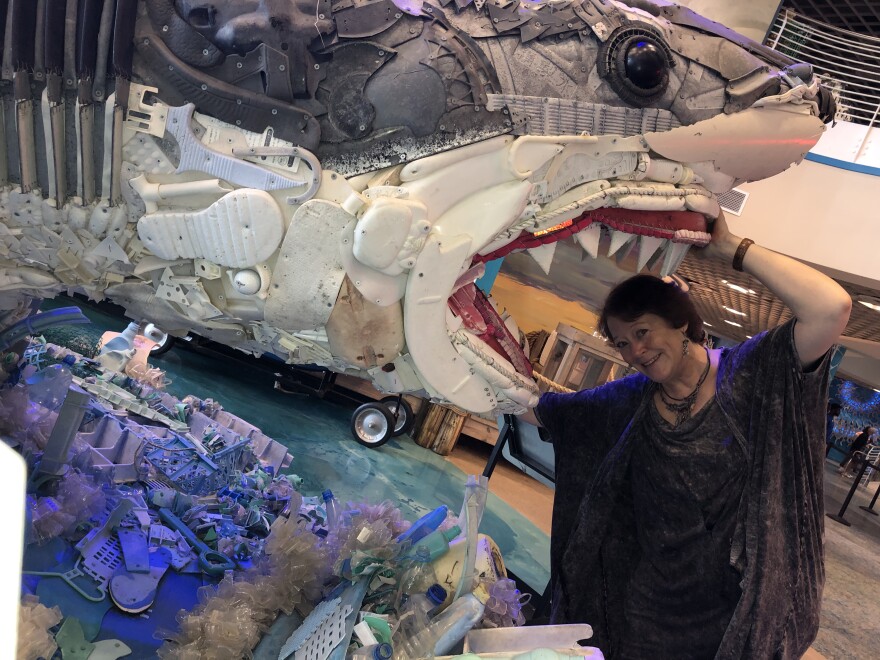A 10-foot tall cheery-looking sculpture named Priscilla the Parrot Fish is the new greeter at the Florida Aquarium in Tampa. A closer look shows Priscilla is made of discarded toy rakes and shovels, damaged buoys and woven aluminum cans. They're all pollutants gathered from our oceans.
It's part of the nonprofit Washed Ashore project, a touring exhibit out of Oregon, which is celebrating 10 years of spreading art and awareness nationally.
About 20 installations of sea creatures made from colorful plastic garbage now tower over visitors throughout the aquarium.
They're accompanied by signs telling passersby how they can make a difference in plastic pollution, like investing in reusable water bottles and bags.
Kia Bailey-Quinn, who visited from Minnesota, paused for a while to take it all in on Wednesday.
“Well, first I stopped because it's absolutely beautiful, but then my mother in law here told me exactly what it meant, what it was for and what the items actually represented. And it's actually kind of sad. So it's beautiful sadness at the same time,” Morrison said.
She said that being from the Midwest, plastic water pollution is not talked about as much as it is in Florida.
“We have our lakes, and our ponds, our smaller bodies of water, but really, the ocean is so much more vast,” she said. “So being not from Florida, this is very, very eye opening.”

Angela Haseltine Pozzi, artistic director for Washed Ashore, said her giant sculptures made of plastic debris are also meant to reach children. She said that by the time adulthood comes around, it becomes harder to change plastic use habits.
"It took me so long to always remember my water bottle everywhere. I would lose them,” she said. “Now I have a bright pink one so I don't lose it, but with kids, if you teach them my habits early, they've got them.”
Her work did grab the attention of 7-year-old Isaiah Simon.
He looked up with his mouth open at the giant colorful parrot fish made of garbage.
Simon thought the plastic parrot fish looked “cool” as he learned that all this plastic was retrieved from beaches.
Haseltine Pozzi said so far 26 tons of plastic debris have been processed into about 80 works of art and four traveling exhibits touring the country. She said a lot has changed since she started a decade ago.
"We had a show with the United Nations. We've talked to world leaders about it. We've been at the State Department. We're reaching people through the arts as a language. It is a powerful language, and you can reach everybody, and I love that," Haseltine Pozzi said.

Sandra Morrison, with the Florida Aquarium, said the project is important for this region.
"It makes sense to have it here since we're so attached to nature, and our environment is such an important part of the Tampa Bay area and community, that this makes sense for us to have this at the Florida Aquarium," she said.
The exhibit will be on view until the end of August.













